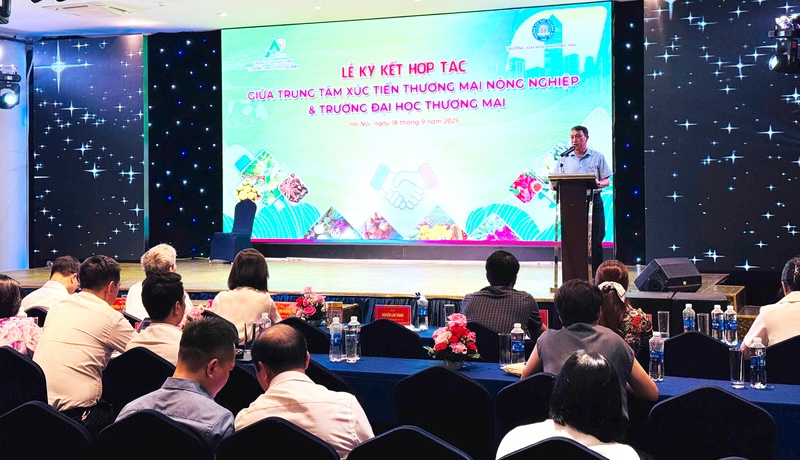
Vietnam’s farm exports face urgent push for digital trade promotion
19:05 | 23/03/2025 18:56 | 18/09/2025Domestic market
|
Japanese supermarkets
According to the Japanese Ministry of Finance, Japanese food, farm produce and seafood exports to Vietnam in the first five months of 2018 increased 24.8 percent over the same period last year. In 2017, Japan surpassed Thailand to rank sixth among food, farm produce and seafood exporters to Vietnam, with revenues of JPY39.5 billion (about US$350 million).
The Japan External Trade Organization (JETRO) assessed that in recent years, the increased presence of Japanese consumer goods in Vietnam is the result of their high quality, known origin and competitive prices. Many Japanese supermarkets have been launched in Vietnam, including AEON, Ministop, Family Mart, Tokyo Deli, Gyu Kaku, and Oshaka Ohsho, among others.
Some Japanese enterprises are gearing their consumer goods and foodstuffs to Vietnamese consumer taste. Lotus Group Chairwoman Le Van May said many Japanese companies have opened and will launch more Japanese restaurants, and build factories to produce foodstuffs for the Vietnamese market and even export some to Japan.
Boosting competitiveness
JETRO regularly holds programs to help Japanese companies introduce foodstuffs and agro-forest and seafood products to importers, distributors, restaurants and hotels in Vietnam.
Nakajima Hayato from the Middis Inc. (Japan) said that in 2017, through a JETRO program, his company signed distribution contracts with three Vietnamese companies to export Bean Stalk milk worth JPY100 million to Vietnam. The company is expected to double the export value in 2018, he added.
Oitaken exports five tonnes of Kosui pears to Vietnam annually. This year, Oitaken has added Niitaka and Hosui pears to its Vietnam export list. An Oitaken representative said Niitaka and Hosui pears are also exported to Chinese Taipei, Hong Kong (China), Singapore, Thailand, and the Republic of Korea.
JETRO Chief Representative in Ho Chi Minh City Takimoto Koji said Vietnamese consumers’ growing trust in Japanese goods and Japanese companies’ promotion of investment in services, consumer goods and catering services are opening up many opportunities for investors. This has forced Vietnamese enterprises to improve competitiveness by providing safe, higher quality products, Takimoto Koji said.
According to JETRO’s assessment, Vietnam has become an increasingly promising market for Japanese food companies. In 2017, Vietnam imported 22.4 percent more foodstuffs than in 2016, including powdered milk, seafood and other products, from Japan. Imports in the first five months of 2018 increased 24.8 percent over the same period last year. |

19:05 | 23/03/2025 18:56 | 18/09/2025Domestic market

19:05 | 23/03/2025 18:55 | 18/09/2025Trade

19:05 | 23/03/2025 18:48 | 18/09/2025Foreign trade

19:05 | 23/03/2025 22:13 | 17/09/2025News and Events

19:05 | 23/03/2025 21:04 | 17/09/2025News and Events